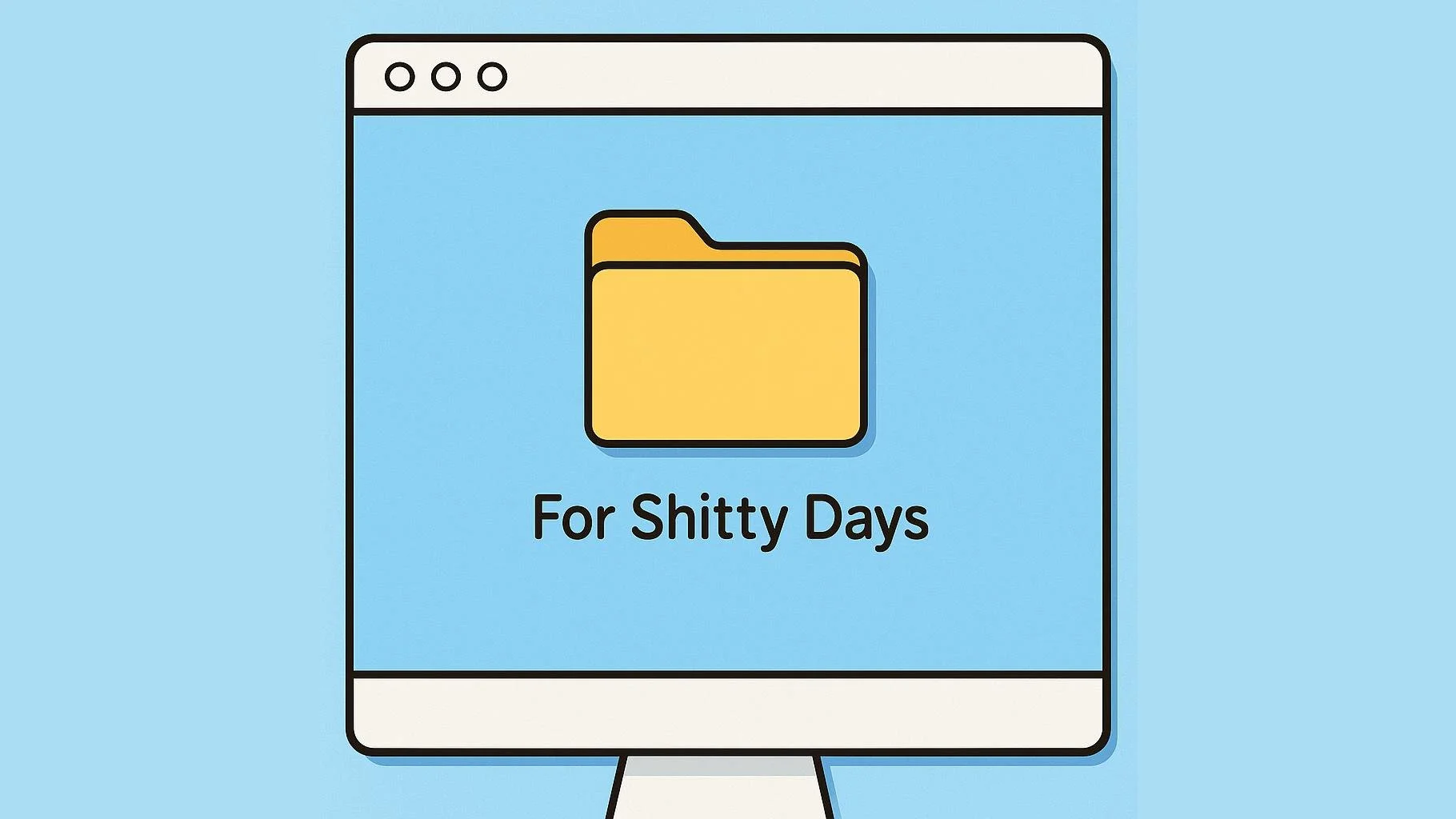Sometimes you have shitty workdays - here’s a little tip to help you get through them.
Earlier this year I spent a day helping a school improve the wellbeing of their teaching team.
The director wanted me to understand the culture of the school, so we spent a good portion of the day sitting in his office as he told me stories of students and teachers. At one point, I asked him why he’d become a teacher. He leant forward, opened a file on his desktop, and read me an email he’d received from an ex-pupil earlier in his career.
The email was beautiful. It thanked the teacher for the lessons she’d learnt from him and the impact he’d had on her life. It described the positive influence the teacher and the school had had on her both personally and professionally, and how she would forever be grateful for their kindness and belief in her.
The director then told me he kept all these emails and letters in a folder on his computer called “For Shitty Days”.
“A strange title,” I thought, for such a beautiful letter.
Then he explained.
“Our work is tough sometimes,” he told me. “Parents can be difficult, kids struggle and teachers can be tricky. Sometimes I doubt whether it is all worth it. When I’m feeling down, I open the folder and remind myself of the difference we’re making.”
Our negativity bias
As humans, we have a negativity bias: we place more weight on negative events than positive ones. It’s an evolutionary thing. When our caveman ancestors heard a twig snap behind them, it was better for them to assume the worst and jump for cover from the sabretooth tiger than to assume it was a friendly puppy out for a stroll.
Fast-forward to today, and the same bias means that when we get an angry email, when a project doesn’t go to plan, or when a client fails to place the order they promised, we focus on the negatives and forget all the good things that have happened in our work. We can only see what went wrong.
For many of us, it’s really difficult to put those “bad” events into perspective. And as a result, when things don’t go to plan at work, they can make us feel disproportionately shitty.
The Good News
Don’t despair. There is a way to make those “shitty” days a bit more bearable. And it’s not as difficult or radical as you might think. You can train your brain to be less negative and to notice more of the positives.
Neuroplasticity
Your brain is amazing. It can actually change itself in response to new information. This is called neuroplasticity. By practising positive thinking, you can rewire your synaptic connections and gradually become a more positive person.
Mo Gawdat (ex-Head of Google X, author of Solve for Happy, and generally a very clever guy) rewired his brain by forcing himself to think of nine positive thoughts every time he had a negative one.
At work, you can use the same principle to overcome negativity bias, by reminding yourself of the good things that have happened in your career.
Tip of the week
Create a folder on your computer called “For Shitty Days”
And in that folder save any nice emails, messages, chats or comments from your coworkers and managers.
When you feel a bit down, just open up the folder and have a read. You’ll soon feel a little better.
-
According to the US Surgeon General there are five pillars to being happy at work and feeling that your work has meaning is one of them. And sometimes just knowing that everything isn’t always bad can be a real help.
Follow the blog
I regularly write on how you can use the science of happiness and the science of wellbeing to improve team performance. Sign up now to receive the latest blog posts in your inbox.



